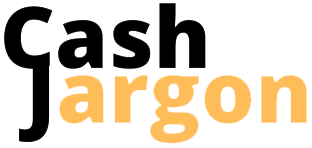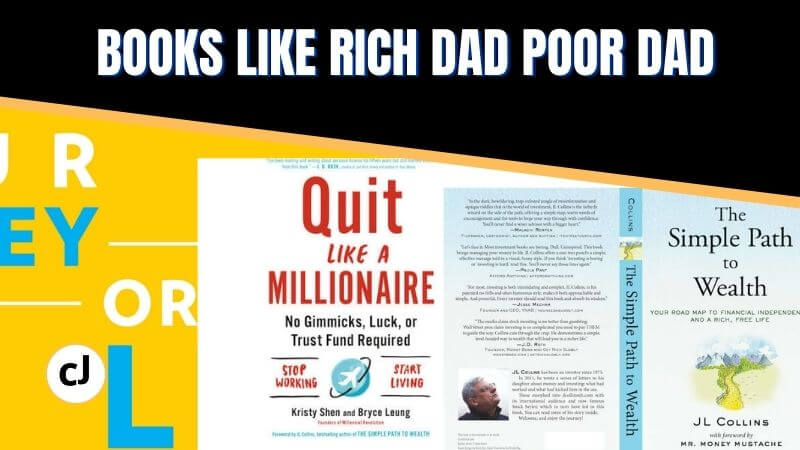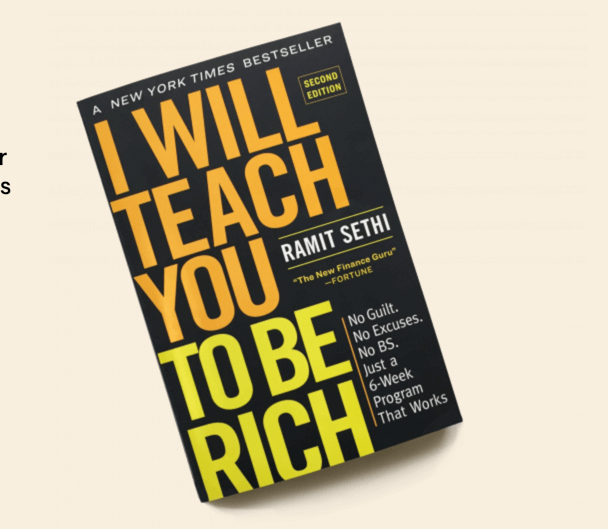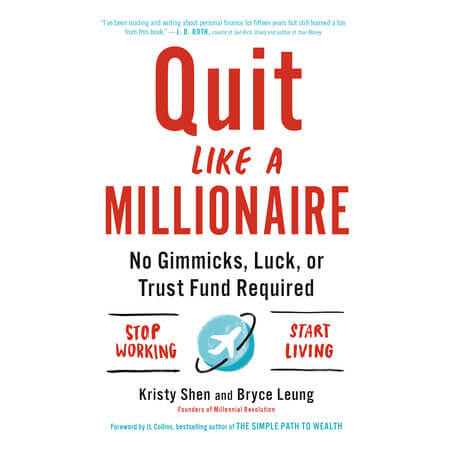I looked for a long time on books like Rich Dad Poor Dad because that book had so much effect on me I knew I had to see if other books were able to maintain that magic, this list idea was born out of that thought and passion.
Robert T. Kiyosaki’s Rich Dad Poor Dad is a finance book written in 1997 that sold over 58 million copies. It emphasizes the need for monetary knowledge, establishing moves through resources investment, and starting businesses. Additional insights include financial autonomy, budgetary training, and financial IQ that boost a business.
The book shows the difference in how rich people versus middle class and poor people handle money. Succeeding in school and the job market does not guarantee financial independence. The book also emphasizes how proper education and training can be the most significant asset on wealth accumulation and management.
If you love Rich Dad, Poor Dad and want to read more about personal finance and finance education, we have come up with a list of top books similar to it. These books will help you think about money and offer insights into financial independence. Here are the ten books identical to Rich Dad Poor Dad:
10 Books like Rich Dad Poor Dad
- Think and Grow Rich, by Napoleon Hill
This book is a staple book for anyone willing to get wealthy. It offers readers the significance of affirmations to build up the process of wealth accumulation and opportunities. Arguing the first step of being financially successful is believing it in the first place, the book is a worthwhile priority.
Even though it lacks practical tips and advice, it offers you a breakthrough to the idea that getting rich is achievable. Napoleon Hill and Kyosaki both understand that making money is a mental game. The book breaks down into 13 steps to Riches, including:
- Thoughts are things
- Desire
- Faith
- Organized planning
- Persistence
- The Sixth sense
- The subconscious mind
- The mystery of sex transmutation
- Autosuggestion
- Specialized knowledge
- Imagination
- Decision
- The power or the Mastermind
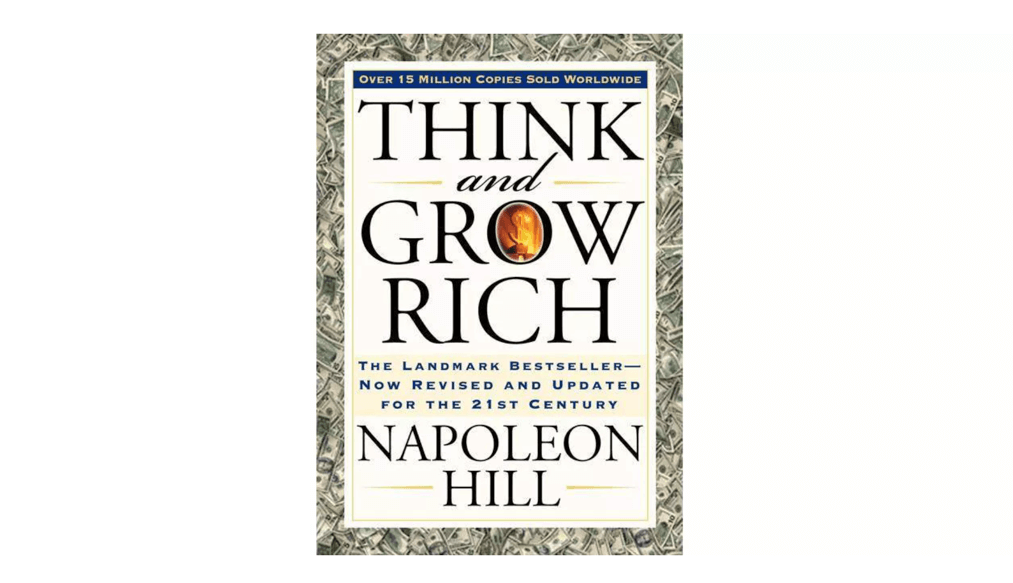
The book teaches how to combine the power of thought with visualization and perseverance to succeed. It also offers tips on overcoming various fears that hold you back from being financially successful.
- The Automatic Millionaire by David Bach
Besides its catchy name, this book is an excellent resource for anyone starting to save money. It argues that a lot of money is not necessary at the start of your journey to becoming a millionaire. The main idea is to regularly save small amounts of money, which eventually builds up into great value.
The Automatic Millionaire is a mandatory onset value for your saving journey. The book talks about paying yourself first for the future. This means allocating money like emergency funds, IRA contributions, and funds for important goals. Paying yourself first forces you to save for the future and avoid life inflation pitfalls. It also provides insights on how to have your money working for you.
David Bach argues that you don’t need a budget nor a lot of money to maximize your earnings. He argues that you do not even need the willpower to accumulate wealth. The self-made millionaire and financial advisor also expose many wealth misconceptions on the easy to read book.
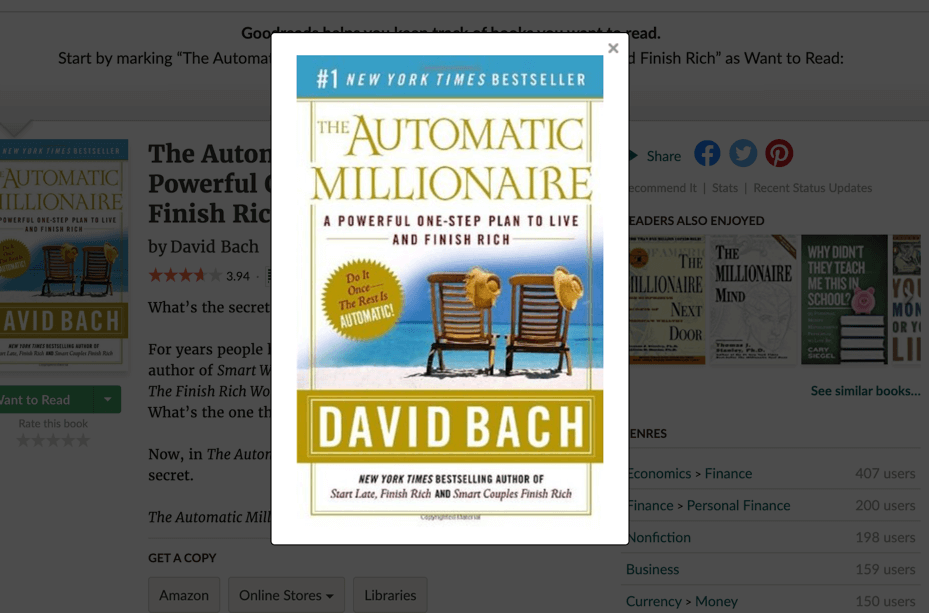
- The Richest Man in Babylon by George S. Clason
The Richest Man in Babylon lays the mental foundation of building riches. It assorts short stories that teach you the basics not taught in school, like investing and saving. The book is a quick read you can quickly get through in a weekend.
With over two million copies sold worldwide, this book offers advice on wealth multiplication and how to solve financial issues. It is based on the secrets of success used by ancient Babylonians. They were the inhabitants of the wealthiest and most prosperous city during their time.
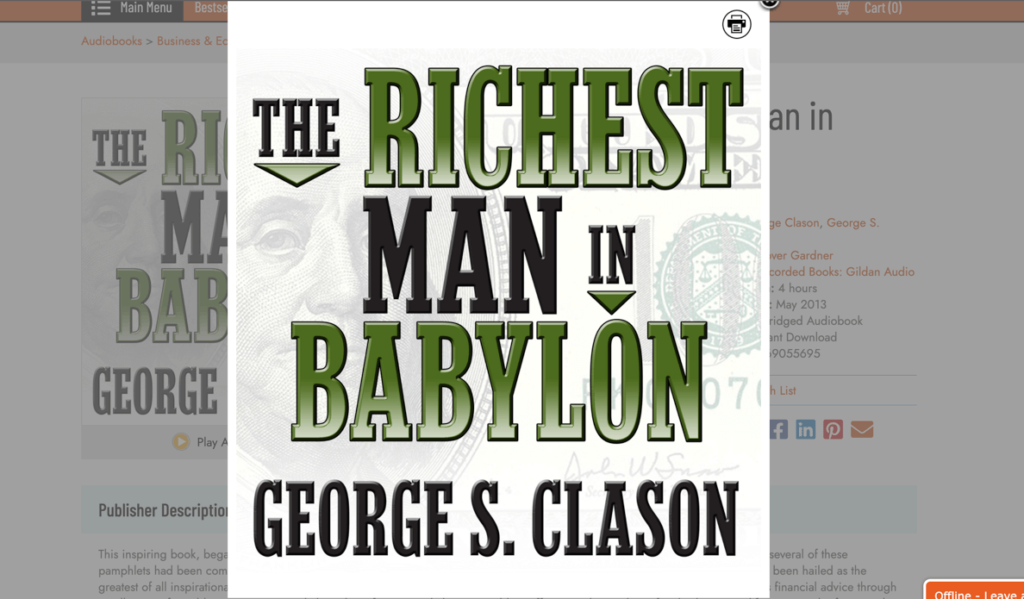
George S. Clason argues that the secret to getting rich is mastering the art of paying yourself first and living within your means. He shows wise and modern-day solutions to avoid running out of money how to save resources in times of opulence. Readers are advised to seek knowledge and information rather than just profit.
- I Will Teach You to Be Rich by Ramit Sethi
This book is ideal for beginners out to discover their financial freedom. Ramit Sethi offers insights on how to automate finances, how to negotiate and get a great job with an excellent salary. When it comes to automating finances, Sethi recommends various systems that help you track your finances. This offers you a great way of controlling your income bud and budget.
According to Sethi, negotiation offers you an opportunity to stand up for yourself when banks and other financial institutions limit your freedom with fees and loan limits.
You can always negotiate a higher credit limit, thereby improving your credit score. You can also negotiate late fees with these organizations. Ramit also offers insights on how to negotiate for higher salaries by conveying your value and building your confidence.
Ramit also applies mathematical rigor to the myths of wealth in homeownership. Contrary to the traditional belief, buying a house isn’t a solid investment mainstream. Ramit’s advice is ideal for careerists who intend to climb the financial ladder. The book also offers valuable insights on accelerating wealth build-up through real estate, entrepreneurship, and side hustles.
- The Millionaire Next Door by Thomas J. Stanley
This book provides an interesting perspective on the daily lives of top millionaires. It argues that a lot of millionaires don’t look like millionaires. They neither live large with huge homes, private yachts, and expensive cars. The mental image of millionaires may be actual for some, but most of them are regulars on the street in moderate outfits, standard homes, and average cars.
The book talks about how you can become an anonymous millionaire by living below your means which ultimately increases your wealth. Regardless of the amount of money you make, you can always live below your means. It offers three main rules for building millions in your bank accounts. They include:
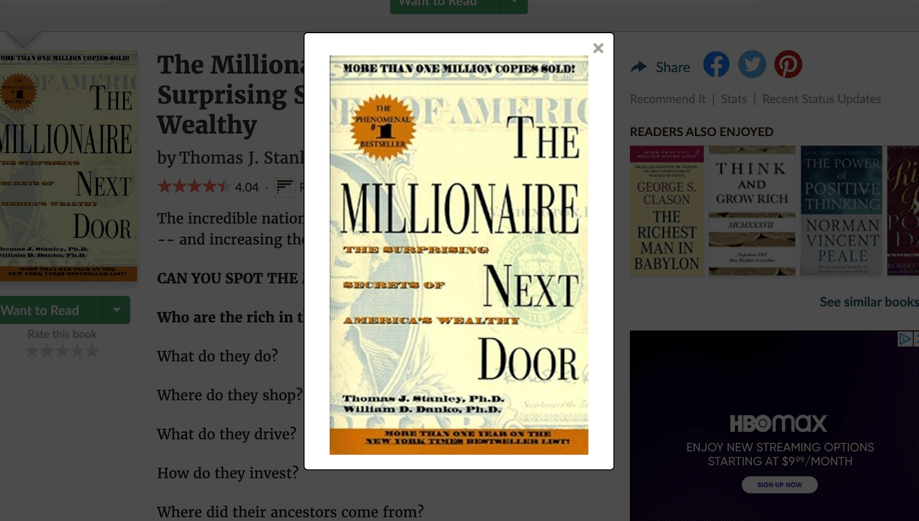
- Saving responsibly as soon as you start earning
- Multiplying your age with pre-tax annual income and divide by 10. This keeps you from falling short of your financial potential
- Reaching your goal by avoiding economic outpatient care
- The Simple Path to Wealth by J.L Collins
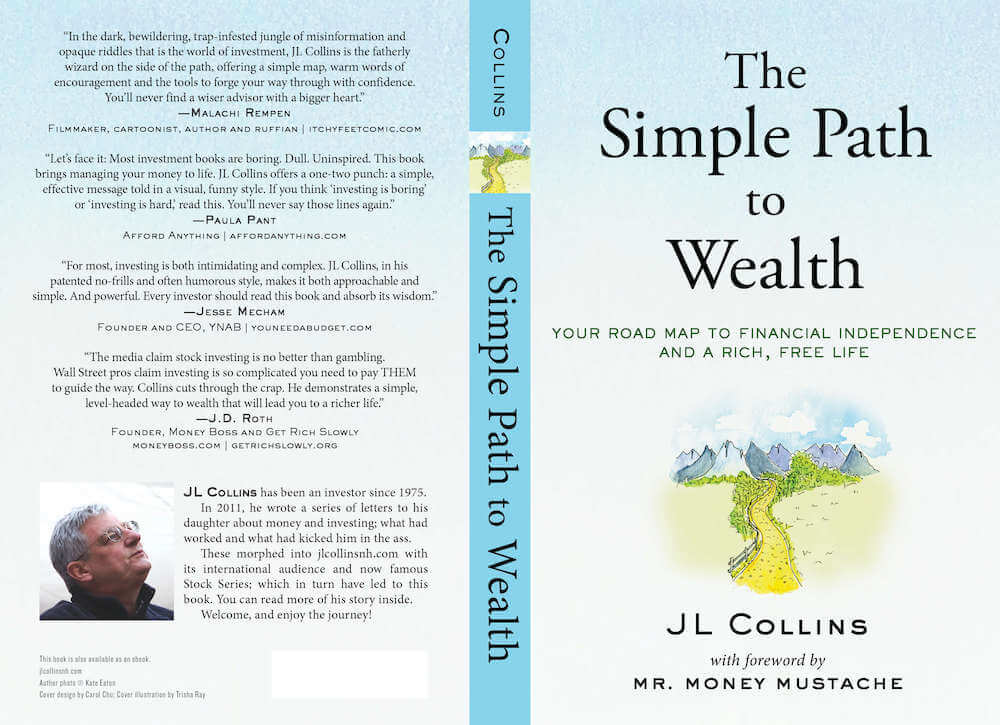
Most readers consider J.L Collins to be the Godfather of modern financial literacy. This book teaches you the importance of staying away from debts and confusing investments. He argues that money can buy you a chance to buy financial freedom.
The book was inspired by a series of letters written by J.L Collins to his daughter regarding money and investment. Its main topic is understanding investing and doing it the right way. Other subjects covered in the book include:
- Why debts ought to be avoided
- The significance of having the money you can spend without overthinking.
- How to think about money
- What works when investing and what doesn’t.
- The meaning of stock market
- Investment strategies
- The best investment firms to use
- Engaging an investment advisor
- Avoiding being conned
- Financial independence
If you are out to grasp financial concepts that seem too hard to understand, this is the right book for you.
- Set for Life by Scott Trench
This financial literacy book is Ideal for beginners intending to invest and plan wealth. This book offers a guide on how you view wealth building. The book is an achievable and actionable compass that anyone can follow to financial success.
Just like Think and Grow Rich, this book will recalibrate your inner compass to view wealth accumulation in a particular light. If you are starting out, this is the ideal book for you. This book is the perfect guide for tracking financial progress, securing tangible assets, and avoiding false purchases that destroy wealth. It also advises you on building frugal, efficient habits that help you make the most out of your lifestyle.
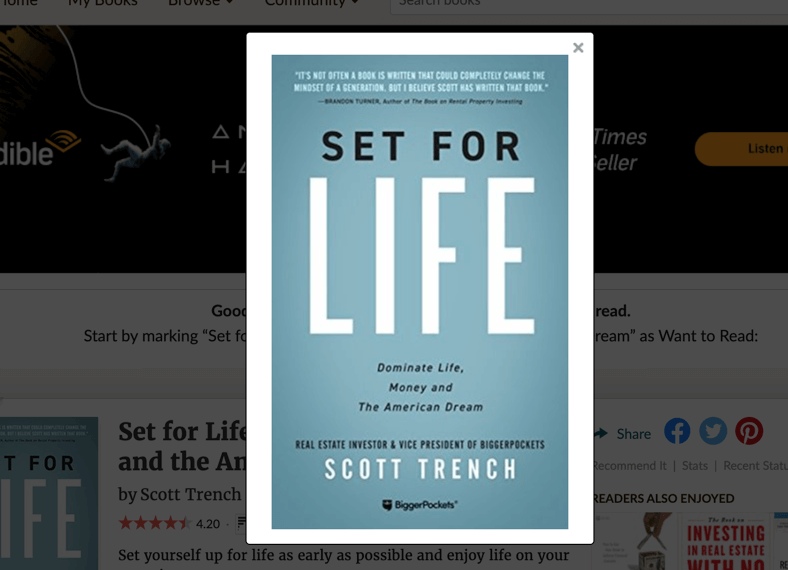
Scott Trench provides steps to zero debt then a ladder to money and wealth accumulation. The book will teach you how to invest in real estate, living below your means, and house hacking.
- Quit like a millionaire by Kristy Shen and Bryce
Just when you think you have mastered the basics of financial independence, this book offers a different strategy. Kristy and Bryce explain how the hollow advice of following your passion can mitigate financial trouble. It advises to first invest in an opportunity that would pay for itself, which ultimately affords your luxury and freedom of retiring.
Through Kristy’s own experience, the book further explains how to sail into retirement without ever returning again. If you are worried about market crashes, the book offers you a retirement plan by creating a cash cushion and yield shield.
Kristy and Bryce advise you to have at least three years of living to boost you in case of any market dip. An investment portfolio such as dividend stocks or real estate is also necessary to avoid dipping into your investments.
The authors also recommend geo-arbitrage as a solution to reducing your costs and expenses. This allows you to stay retired, cut living costs and use your savings in cheaper currency.
- Your Money or Your Life by Joe Dominguez and Vicki Robin
This book emphasizes learning the actual value of your time and money awareness. Its author Vicki Robin is considered the godmother of the financial independence movement. She argues that money is not the answer to happiness and what you need to achieve true life satisfaction. The book offers a tool that will help you discover the actual value of your time and how you can spend it wisely as you do your time.
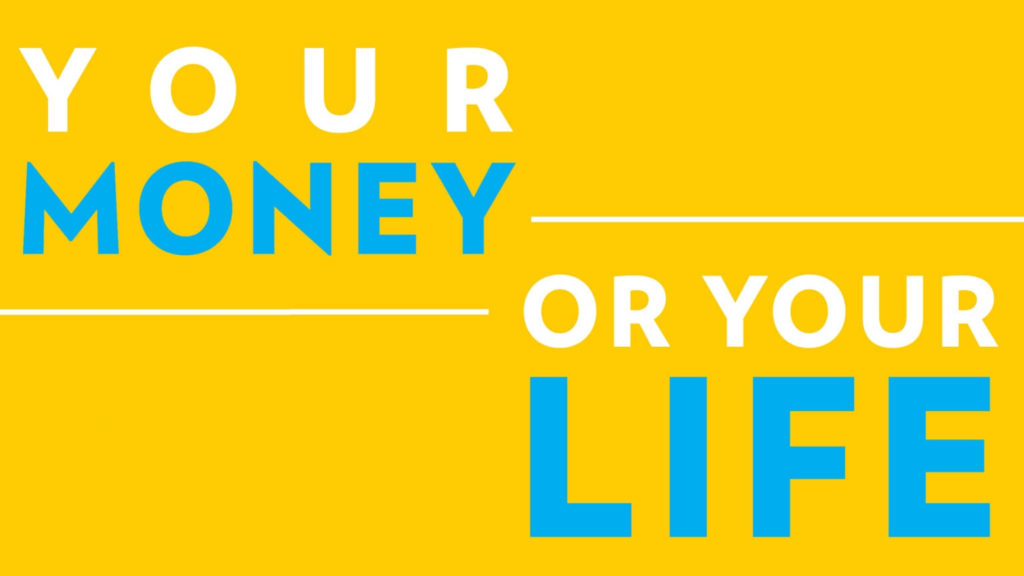
This book is not an average financial independence guide. It provides a comprehensive system that evaluates your past decisions, present situation, and future potential. If you are not familiar with the financial independence concept, this is the right book for you. The book is also valuable to readers looking to change their current situation and financial savvies.
Robin and Dominguez emphasize the need to align your money with your values. He argues that once you spend, you should ask yourself, “Did I receive fulfillment in proportion to life energy spent? Is my expenditure in line with my values or purpose? How can this expenditure change if I didn’t work for a living?” This allows you to explore your values.
- Financial Freedom by Grant Sabatier
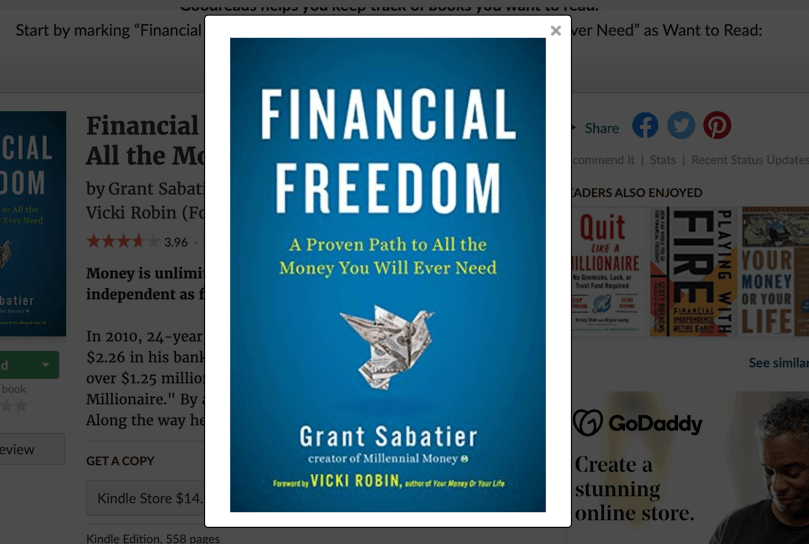
This book is ideal for you if you want to optimize your day job, start a side hustle or optimize your finances. Grant Sabatier has had a successful financial journey going from less than three dollars to one million dollars in the bank within five years. He offers details on how to hack your job to make money online.
Financial Freedom offers a step-by-step guide to make more money in less time so that you can make time for the things you love. It challenges the familiar narrative of spending eight hours in your day-to-day job, pinching pennies, and earning the right to retirement. It offers readers an exciting alternative: forgetting the standard set up to live the life you want.
Grant Sabatier offers advice on creating profitable side hustles, saving money without giving up what you love, and traveling the world for less. It also advises negotiating more out of your employer, living at a low cost, and thinking creatively. Sabatier highlights that your ability to make money is limitless, but your time is not; that there is a limit to what you can save but not what you can make.
Bottom Line
Finance is one of the most vital areas of our lives. Some people earn an average salary but still manage to save fortunes. Some earn seven-digit figures monthly and still struggle to make ends meet. Financial literacy is the secret to managing your income. To avoid struggling with your personal finances, consider reading one of these books.
There are plenty of phenomenal books one can read about financial freedom and the relevant mindset. If you identified with Kiyosaki’s Rich Dad, Poor Dad, these great books offer a lot of information on growing wealth and personal finance. Any of these books will be a great asset to your personal financial journey.
